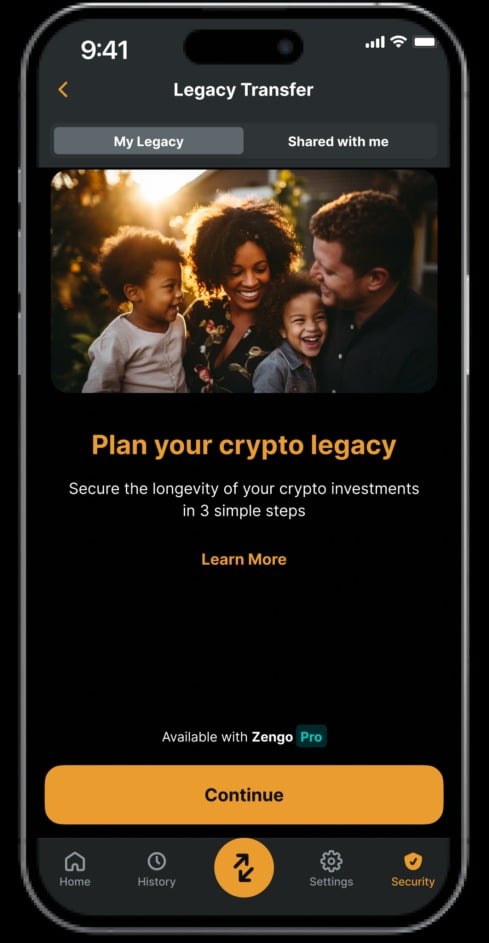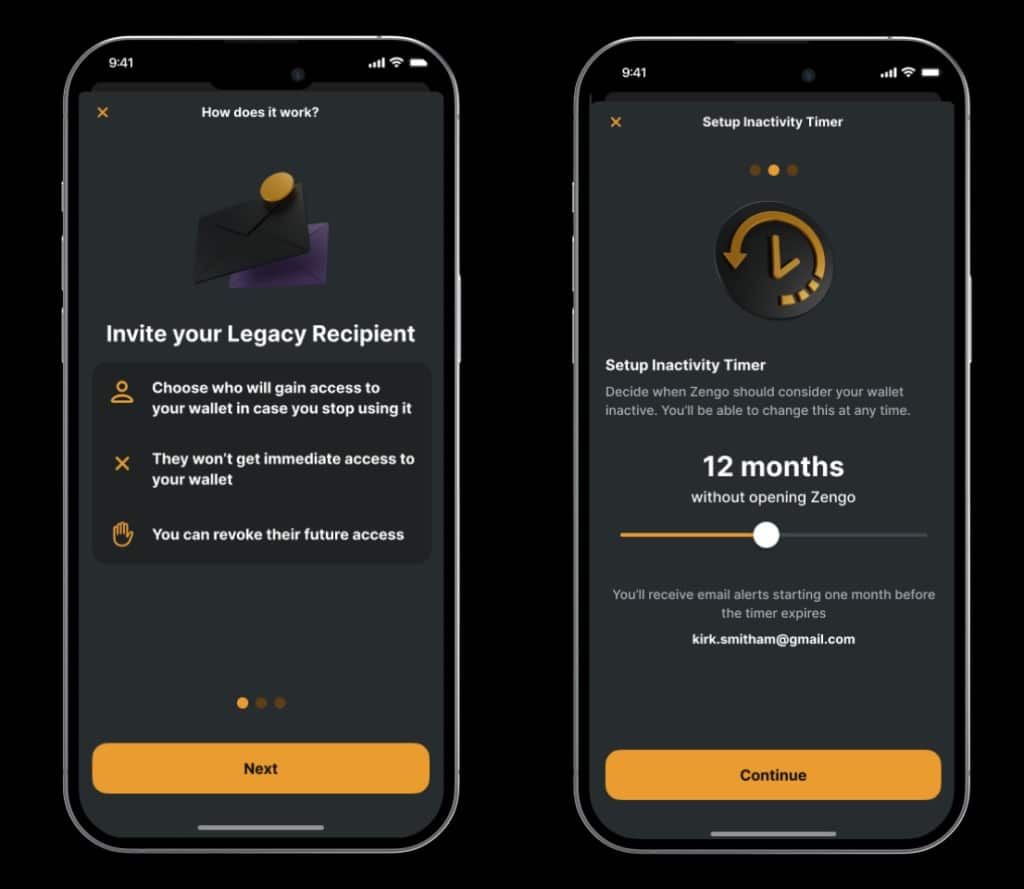Have you ever wondered how your cryptocurrencies will be passed on to your family in the future? Discover Legacy Transfer, the new feature of the Zengo cryptocurrency wallet that allows you to prepare the inheritance of your digital assets.
Zengo Pro adds Legacy Transfer
If you’re a cryptocurrency investor, you’ve probably already wondered what would happen to your digital assets if something went wrong. How would your family be able to recover your cryptocurrencies if you were no longer present to communicate to them the procedure to follow, as well as your private keys?
A solution to this major problem is now offered by the Zengo digital wallet.
Called Legacy Transfer, this new option enables you to prepare for the future of your cryptocurrencies.
Legacy Transfer takes advantage of the high security of the Zengo wallet while facilitating the transmission of cryptocurrencies to designated heirs.
What’s more, this feature is a first in the self-custodial wallet industry, further demonstrating Zengo’s commitment to innovation and investor protection.
By integrating this option, Zengo is fundamentally changing the way people think about cryptocurrency investing. It’s no longer simply a short-term financial decision or a reflection on the future value of an asset; it’s now an investment that can benefit a future generation, even after the investor’s death.

Legacy Transfer is one of the many features available in the Zengo Pro offer. This enhanced version of the digital wallet is offered at two distinct rates: a monthly subscription at $19.99 and an annual subscription at $199.99, which works out at $16.67 a month.
In addition to Legacy Transfer, the Zengo Pro offer includes the “Asset Theft Protection” feature, an advanced protection on funds transfers and a firewall against the hacks, attacks and cryptocurrency thefts that are multiplying in the Web3 ecosystem.
As a reminder, Zengo is an ultra-secure wallet for storing and exchanging cryptocurrencies, without having to keep private keys, but all the while benefiting from institutional-level security. This is made possible by a technology that has yet to be fully exploited: secure multiparty computing (MPC).
This branch of cryptography, previously reserved for portfolios worth several hundred million dollars, has been made available to retail investors by Zengo’s teams. In concrete terms, this means that users never have to reveal their private key, while retaining total control over their assets.
How does Zengo’s Legacy Transfer work?
As you can imagine, Legacy Transfer aims to prevent the loss of your cryptocurrencies in the event of their disappearance. To do this, you need to subscribe to Zengo Pro and follow a few steps to set up your legacy.
To begin with, you’ll need to choose a recipient to receive your cryptocurrencies. Note that the recipient does not have to be a Zengo Pro subscriber, but must have his or her own Zengo wallet to receive the funds.
Next, you’ll need to set a period of inactivity between 3 months and 2 years. Each time you open the Zengo application, this counter will be reset to zero. However, if it exceeds your limit, this will be the trigger for transferring your digital assets to your heir.

Overview of programming a Legacy Transfer on Zengo Pro
To finalize the operation, the beneficiary must accept his new role by validating in his own Zengo wallet. Once this has been done, the beneficiary will receive an inheritance file that will enable him/her to discover the various operations to be carried out to recover the cryptocurrencies intended for him/her.
Note, however, that this document will be of no use to him (or to a hacker) until the inactivity period has been exceeded, thus triggering the start of the procedure. To find out more about Legacy Transfer, visit the Zengo website for a full set of frequently asked questions:
